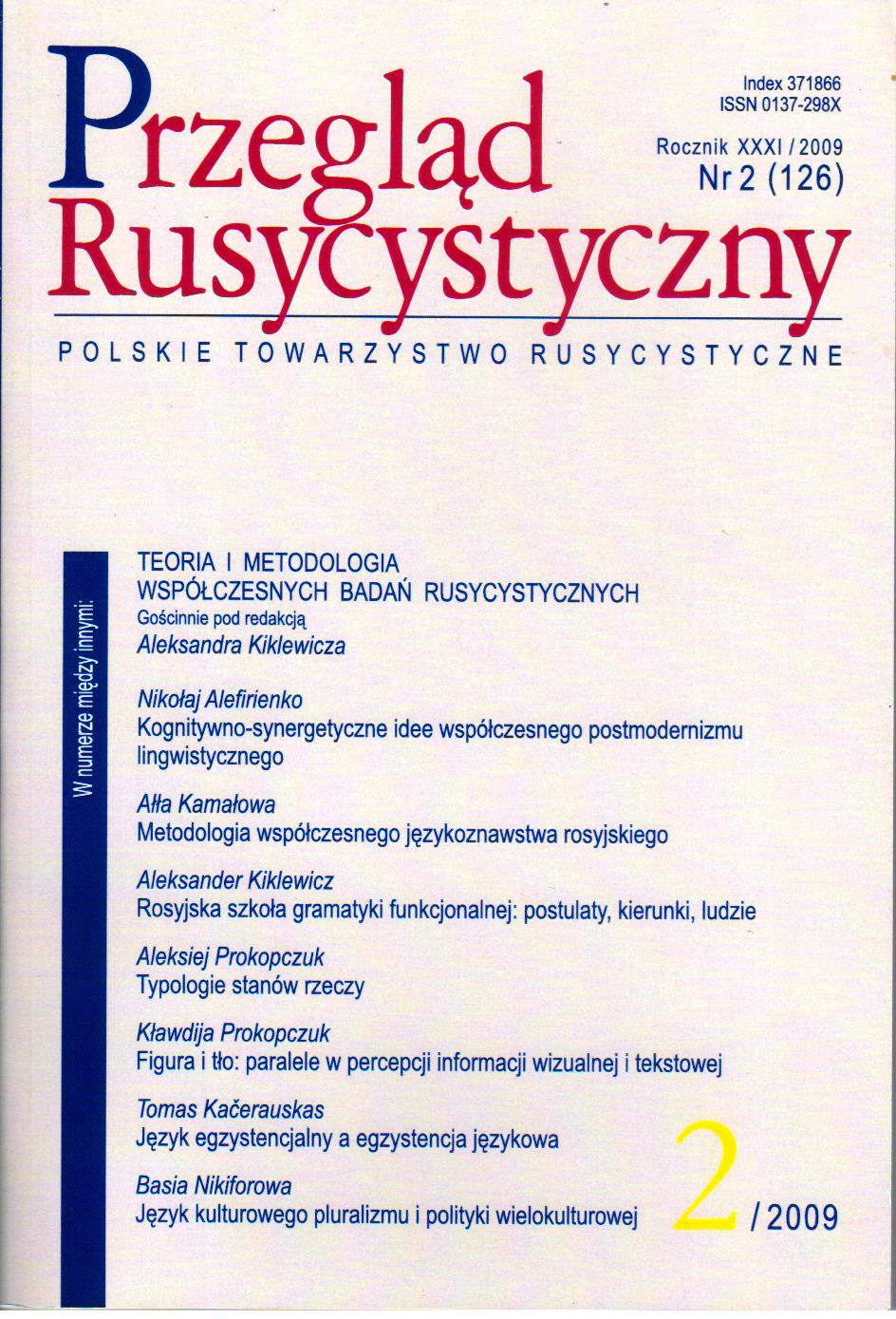События, их концептуальная категоризация и манифестация в русском языке
в сопоставлении с немецким языком
Events and their conceptual categorization and manifestation in the Russian language compared to German
Author(s): Vladimir D. KlimonovSubject(s): Language studies, Language and Literature Studies, Morphology, Comparative Linguistics, Eastern Slavic Languages, Philology
Published by: Polskie Towarzystwo Rusycytyczne
Keywords: Russian language; comparative grammar; German language; aspectuality; verbs; morphology
Summary/Abstract: In Russian and in German events (eventiva) and their subclasses are represented on two levels: on the level of conceptual categorization (as a set of semantic features) and on the level of the manifestation of conceptual base structures (means of expression are here morphological, syntactic and contextual markers of aspectuality). The different distribution of the natural (i.e. of the optimal or preferential) and the non-natural (i. e. of the non-optimal or non-preferential) exponents of aspectuality reflects the typologically relevant peculiarities of the grammatical systems of the two languages compared. In the Russian language with its rich repertoire of means of expressing aspect information a competition between the different types of aspectual markers can be noticed. The replacement of non-natural markers of aspectuality by natural markers proves the existence of a tendency to language economy, i. e. to the optimal organization of the aspect system of Russian verbs.
Journal: Przegląd Rusycystyczny
- Issue Year: 2007
- Issue No: 117
- Page Range: 71-91
- Page Count: 21
- Language: Russian

